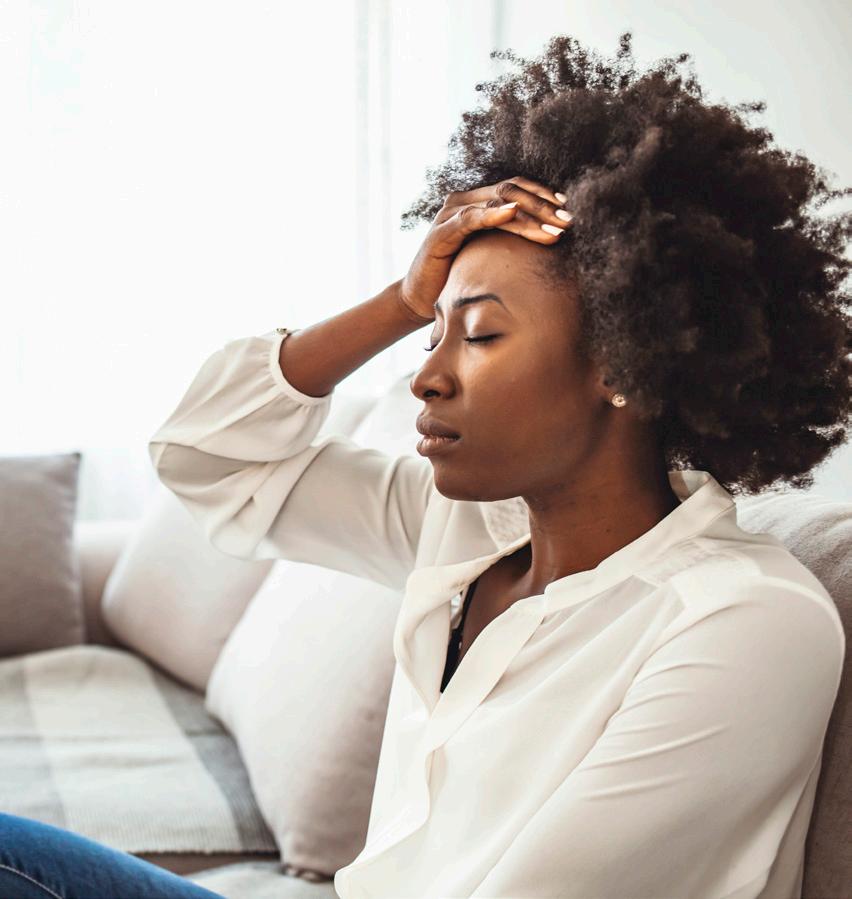
2 minute read
I just need some sleep!
We all know tossing and turning is annoying, but during menopause, disrupted sleep can become even more pronounced.
What’s worse? Sleep issues have the potential to exacerbate other menopause symptoms.
Sleep disorders impact 39% to 47% of perimenopausal women and 35% to 60% of postmenopausal women, according to the National Sleep Foundation.¹ During menopause, decreasing levels of estrogen, progesterone and melatonin — along with an increase in the stress hormone, cortisol — can all contribute to sleep problems.²
And missing out on a few hours isn’t just exhausting; it can also impact your overall health during menopause, potentially triggering brain fog and other cognitive symptoms, as well as contributing to anxiety, and exacerbating weight changes and mood swings.
As frustrating as sleep problems are, there are ways you can address them.
Forget counting sheep — make sure you create a bedtime routine that helps you wind down (and stick to it). And if you can, invest in a comfy mattress and cool bedding to cultivate a sleep oasis. After all, quality rest is crucial to your well-being.
— Dr. Jamie Tartar , PhD
1. https://www.sleepfoundation.org/women-sleep/menopause-and-sleep
2. https://www.ncbi.nlm.nih.gov/pmc/articles/PMC5611767/#:~:text=Insomnia%20is%20a%20major%20complaint,in%20a%20more%20gradual%20course





